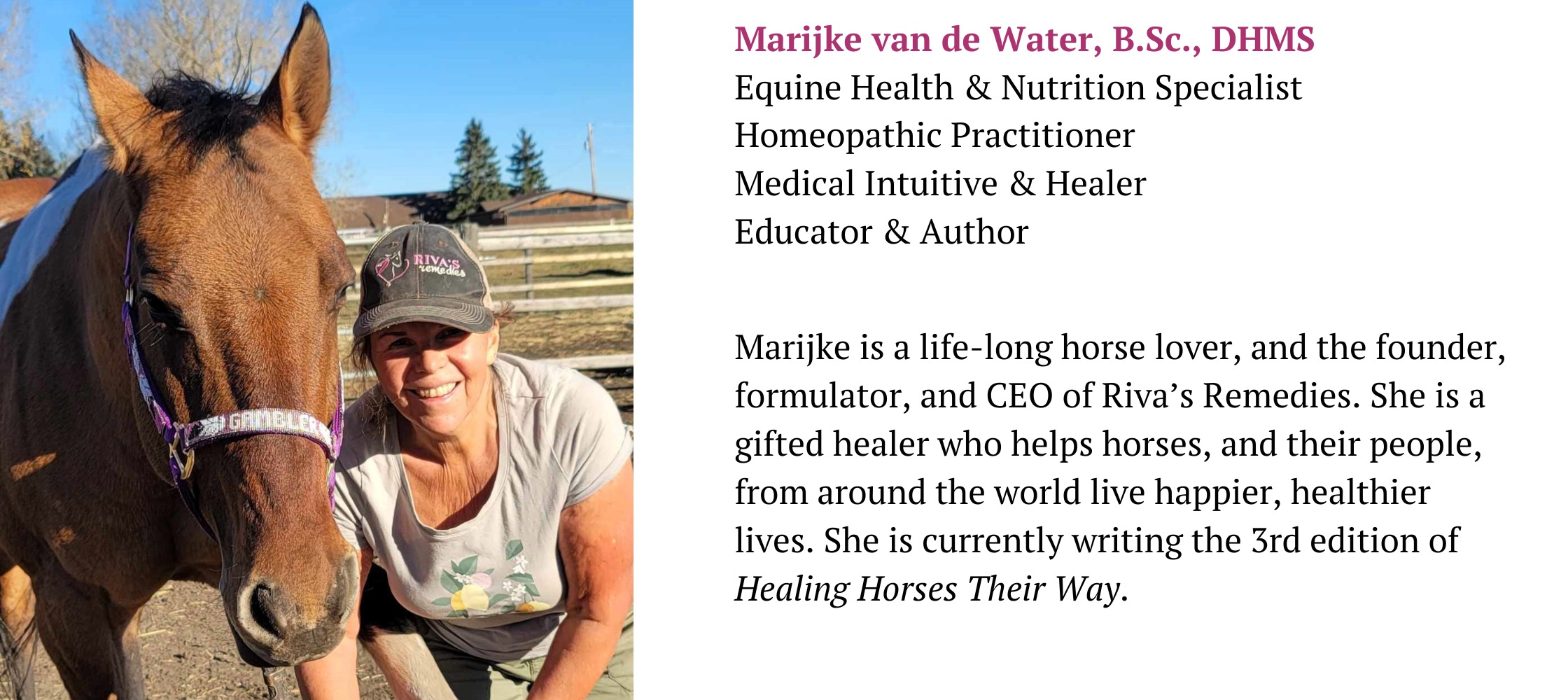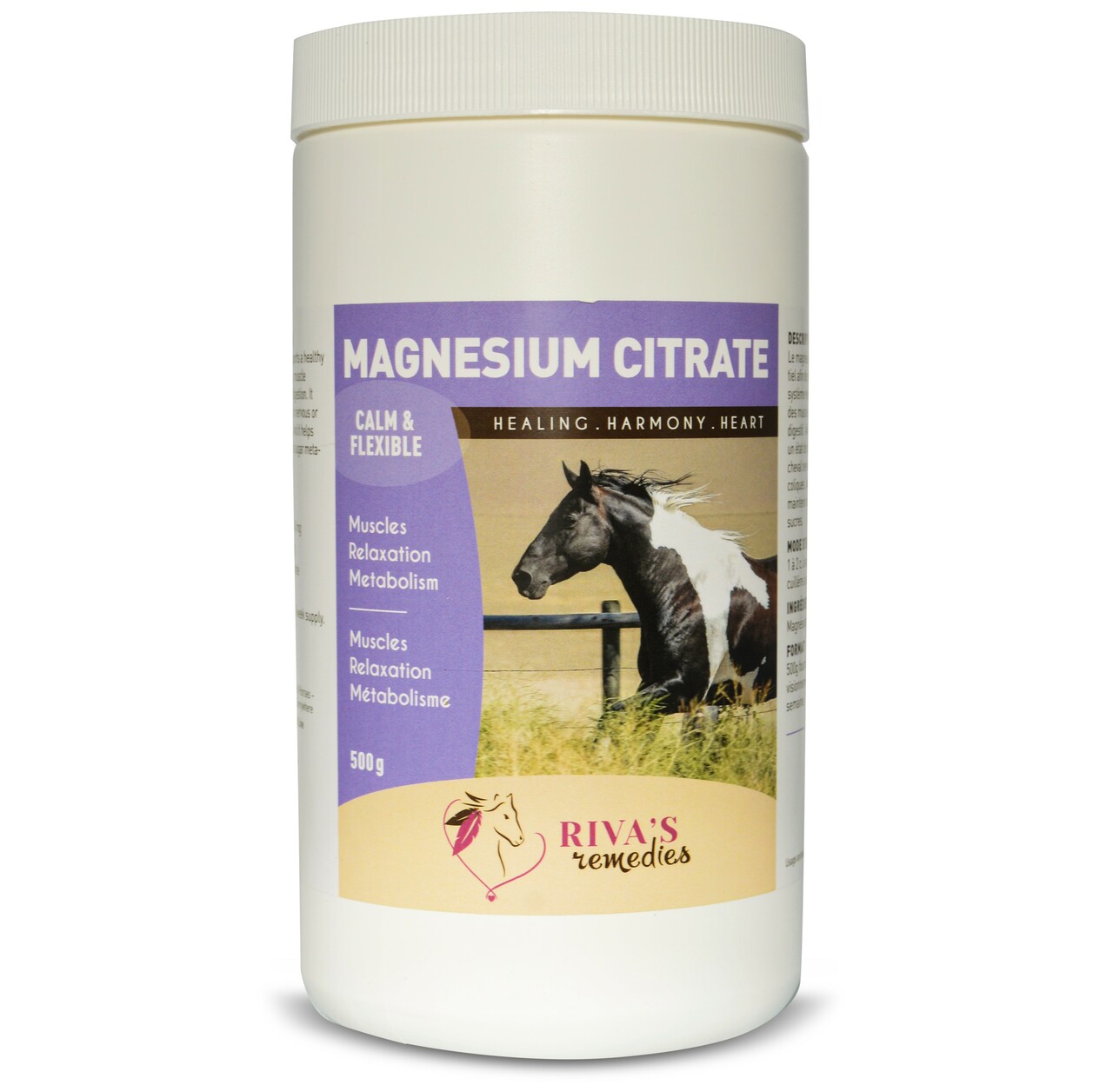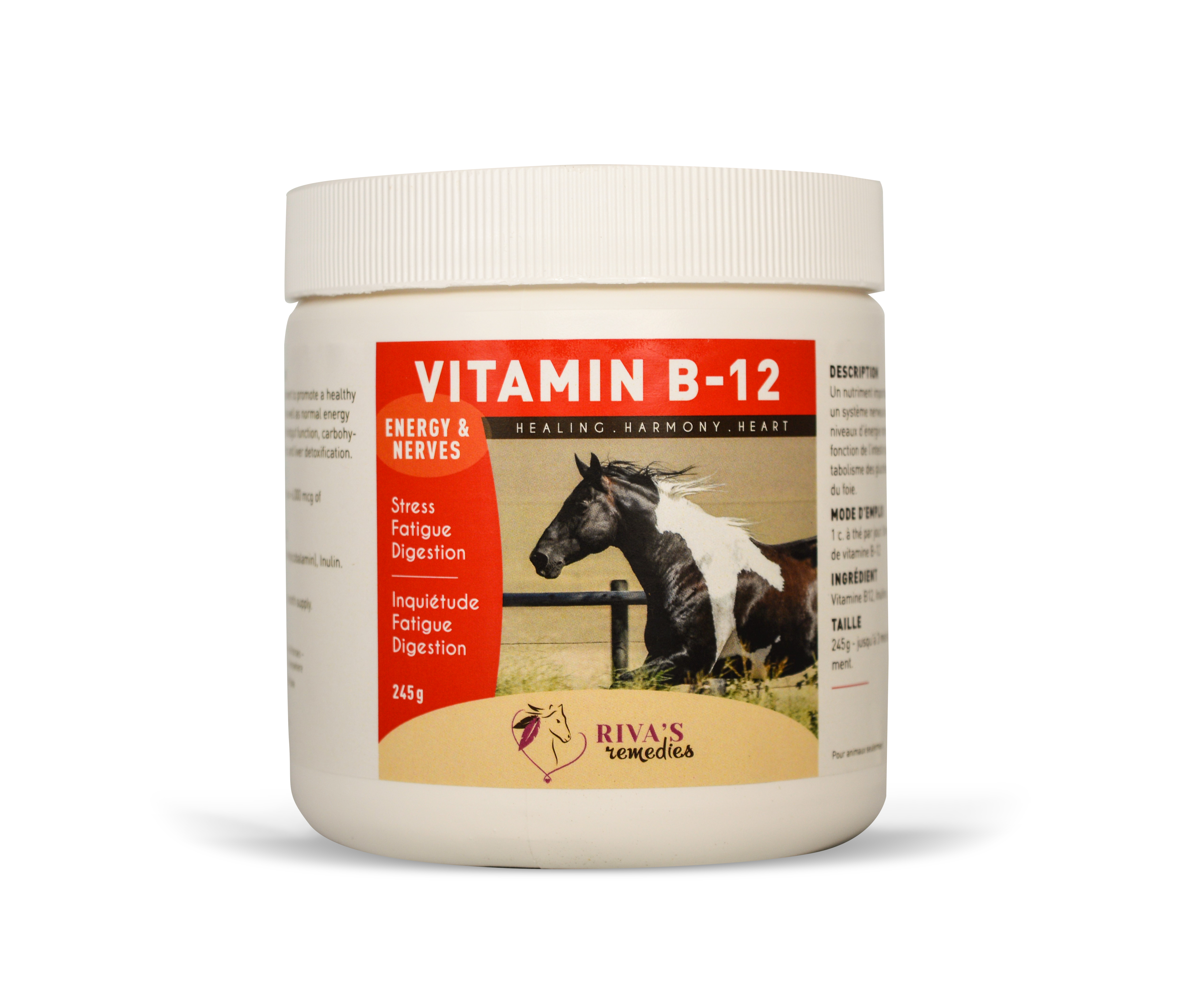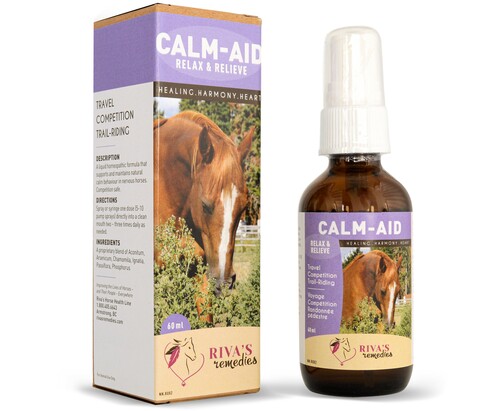What Is Stress?
A stressor is an event that causes a physiological reaction causing a number of different emotional and physical changes. The physical response to prolonged stress occurs in three stages:
1. The alarm reaction is the so-called fight or flight response. It is initiated by the hypothalamus in the brain, which signals the adrenal glands to produce the stress hormones adrenaline and cortisol. Huge amounts of sugar, blood, and oxygen are delivered by increased circulation to the organs in danger; the brain becomes more alert, the muscles strengthen, and the heart pumps harder. But instead of being able to flee danger after which the stress hormones return to normal levels, many of our horses are affected by long-term stress which they cannot run from. If stress is not relieved, it will progress into the next phase – resistance.
2. The resistance reaction is a longer-term reaction whereby the pituitary and thyroid glands now begin to produce more hormones in an effort to support and regulate the over-active adrenal glands.
3. The exhaustion stage occurs when the resistance stage cannot be sustained, and the adrenals literally burn-out. Adrenal burn-out is very common with horses that have endured long periods of physical or emotional stress. A horse with adrenal burnout can be identified by the inability to handle any kind of change, pressure, or stimulation. They experience more depression and anxiety, and suffer more immune-related health problems. Without support, exhausted adrenal glands will usually persist even after the stressor has been removed.
How Do Horses Get Stressed Out?

Horses may very well be more prone to stress than any other domestic animals. Why? Because without a doubt they have the strongest fight-flight response than any other pet, other than perhaps a canary. Setting horses up with the most natural lifestyle possible with the least stress in a domestic setting isn’t easy and requires a strong commitment to horse-keeping and health care. And not all horse guardians understand what a natural lifestyle should look like. Horses are very stoic in that they do not easily express their pain nor their helplessness in being to resolve their own unhappiness. This is interpreted as contentment by many horse people when in fact it is learned helplessness, which is a common type of stress in horses. So you may have to be very astute and in-tune with your horse to determine just what level of stress they are at.
Common Stressors
Here are some very common stressors that the majority of horses have experienced at some point in their lives, sometimes all of their lives.
- Confinement
- Isolation and separation from friends
- Herd Dynamics – getting picked on, or not getting enough to eat
- Infrequent feedings or restriction from food
- High sugar, grain, or alfalfa diets
- Nutritional deficiencies
- Physical pain that is unresolved including joint, muscle, and hoof pain
- Lack of health care including untreated parasites, bad teeth, laminitis, excessive appetite
- Lack of exercise
- Too much exercise
- Loss of freedom to run and play
- High-performance or training pressure
- Stress and anxiety absorbed from their human who is under stress
Why Is Stress Dangerous for Horses?
Both acute and chronic stressors are responsible for many health conditions and contribute to almost all others. Stress is known to reduce energy and performance levels, affect cognitive function and focus, contribute to Equine Metabolic Syndrome including Insulin Resistance and Cushing’s, and negatively affect the digestive system increasing the incidence of colic, leaky gut, ulcers, and cribbing. Stress also increases joint and muscle inflammation since cortisol is a natural anti-inflammatory.
But perhaps the biggest concern is the dramatic effect on the immune system which functions very poorly in the presence of stress hormones. Poor immunity can cause skin problems, cancer, increased allergies, respiratory problems, skin conditions, changes in hormone production, liver and kidney weakness, flus, colds, and other viral diseases. In fact, there are few health conditions which are not affected by a weak immune system.
In addition, brain function does not respond well to stress either. Not only do thinking and judgement abilities decrease, but the brain becomes resistant to change or learning anything new. A stressed brain prefers the familiar where it feels safer. So if you find that when working with your horse that your horse is often uncooperative, resistant, or even explosive it is very likely that your horse is experiencing high stress levels in and out of the arena and s/he just can’t think straight! They want to do what you ask but they simply cannot. Stress hormones also increase feelings of anxiety, nervousness, depression, irritability and anger. So increased stress is not only dangerous for your horse, but can be dangerous for you too!
How To Reduce Your Horse’s Stress Levels
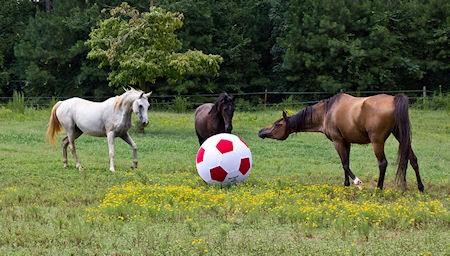
Review the list above and try to correct as many of these lifestyle imbalances for your horse as you can. They deserve it. Pay particular attention to diet, herd dynamics, freedom, health, and your own stress levels that may be rubbing off on your horse. And make sure your horse has playtime with a friend.
Then go about the business of making them feel more relaxed, strengthening their nervous system, and supporting adrenal gland function. Remember, horses who are burned out need nutritional support to recover the health of their entire nervous system.
Recommended Supplements & Remedies
Magnesium Citrate and Vitamin B12 make an effective nutritional combination to promote relaxation in nervous horses, reduce muscle tension, improve energy levels, and promote mental wellness. Together they also support the digestive system and help to prevent various digestive disorders.
For those horses who need extra support for the nervous system and are recovering from chronic stress and burn-out, use the Calm & Cool herbal blend. This blend is specifically formulated to not only relax nervous horses and support adrenal gland function, but is ideal for restlessness, irritability, and mood swings. This herbal blend is excellent support for those horses who have endured long periods of physical or emotional stress. And, if needed, this herbal blend combines nicely with the Magnesium and Vitamin B12.
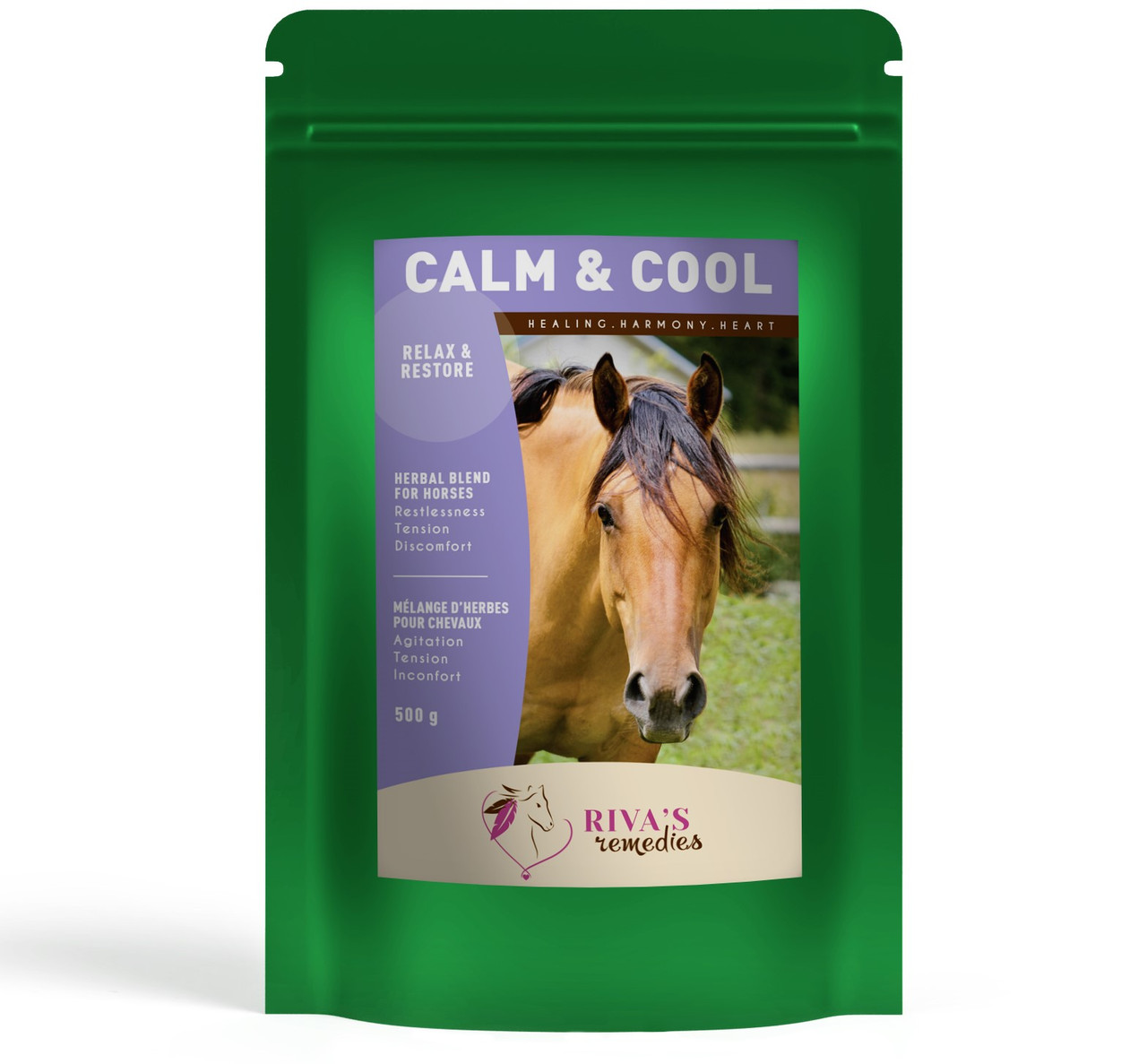
And if you and your horse are looking for quick relief for trimming, trailering, trail-riding, showing, or any other emergency, consider the homeopathic Calm-Aid. It is a vibrational formula which is perfect for those times of anxiety when everyone has the jitters and needs the edge taken off. Homeopathic remedies are very fast-acting (one to two minutes), safe, and effective. And just for you, we also have the human equivalent of homeopathic Calm-Aid – please send us an email or call the office to inquire.
We also have a calming bundle special available at a special price!
Keep Your Horse Happy
So we know now how important it is for your horses’ health, immunity, well-being, and performance to reduce those stress levels. Amazingly, very often it doesn’t take much of a shift in the barn, the field, or in the feed bucket to see a big difference in their physical and emotional health and get them feeling better. Horses are very forgiving and also very patient so let’s give them a hand and help them to fully enjoy their lives - today and every day.
~ Happy Horses Have Happy People ~

*Please note: We provide a thorough selection of our natural products to help you choose the ones that are best suited for your horse. If you need additional assistance in making the right choice, feel free to reach out to us.
